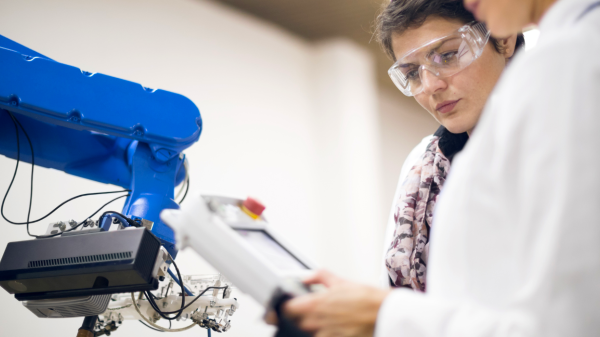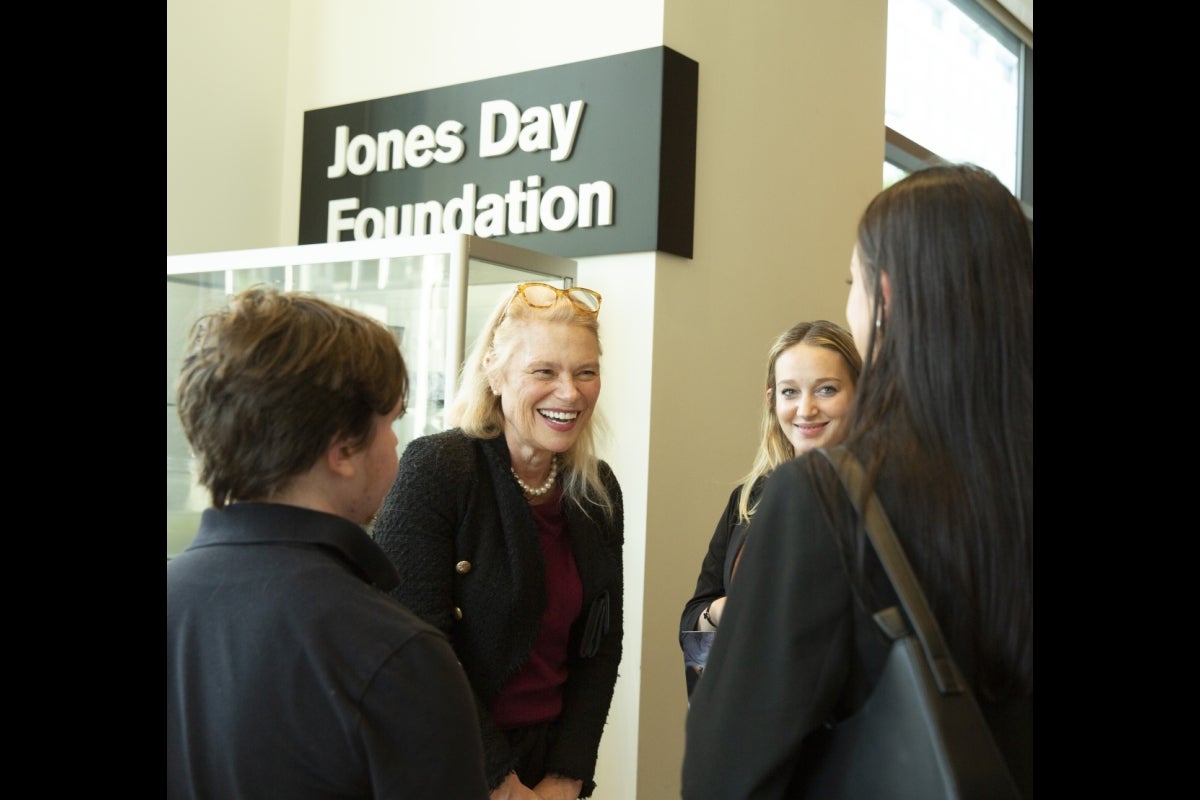Students travel to DC to present proposals on climate change

Students from the ASU Humanities Lab spring course — Diplomacy Lab: Brazil — pose in front of the White House alongside their professors. (Not pictured: Finn Chura and Yudidt Nonthe Sanchez). Photo by Maureen Kobierowski/Humanities Lab
Ten students from Arizona State University’s Humanities Lab spring course — Diplomacy Lab: Brazil — traveled to Washington, D.C., with their two professors to present research on climate change mitigation strategies in Brazil to diplomats, government officials and peers from universities across the U.S. at the U.S. Department of State.
For some of the students, this was their second “field trip” of the semester connected to their Humanities Lab course; the first was a Global Intensive Experience to Brasília, Brazil, during ASU’s spring break.
Diplomacy Lab: Brazil, like all Humanities Lab courses, offers an interdisciplinary, project-based approach to understanding and addressing an urgent social challenge.
The course is offered in partnership with the U.S. State Department's Diplomacy Lab program, a high-impact learning collaboration allowing students to research real-world challenges and create solutions for communities around the world.
Professors Mary Jane Parmentier, from the School for the Future of Innovation in Society, and Glen Goodman, from the School of International Letters and Cultures, worked with Humanities Lab staff to successfully bid for a project under consideration by the Brazilian Embassy, which would serve as the central focus for the lab.
Ryan Watling, student in the Master of Science in global technology and development program at ASU, was pleasantly surprised when his group’s project, “The Impact of the Climate Crisis on Low Income Communities in Urban Brazil,” was shared with the U.S. Secretary of State Antony Blinken’s senior speechwriter for inclusion in an upcoming speech.
“(David Bargueño) did end up providing a few guiding questions for feedback, but in all honesty he was so impressed with our work that he sent it up the chain right away!” Watling says.
“Moreover, when we visited the State Department for the Diplomacy Lab presentations in Washington, Secretary Blinken highlighted ASU's project about climate change in Brazil as the first example of what these partnerships can produce.
“We may not change the world, but at least our ideas are part of the conversation.”
Bargueño, known as the “Climate Guy,” is a U.S. diplomat in Brasília, Brazil, and acting counselor for environment, science, technology and health.
Through the Diplomacy Lab program, Bargueño mentors students in their efforts to address on-ground, real-time climate issues that urgently affect marginalized communities in cities such as Rio de Janeiro, São Paulo, Brasília, Recife and Porto Alegre along the eastern coast of Brazil.
“This year marks a particularly important milestone for this innovative public-private partnership, as we are celebrating our 200-year celebration of bilateral relations between the United States and Brazil,” Bargueño says.
Ella Thomas, a digital audiences major at ASU, is also in Watling’s group. She and teammates Maya Horn and Garrett Armstrong are focused on COP30, an annual climate change conference scheduled to take place in Belém, Brazil, in November 2025.
“The conference is meant to be a space for revolutionary discussions of climate change, but holding it in a city with such fragile infrastructure will make the event itself extremely unsustainable and harmful to local marginalized populations. The city only has 12,000 hotel beds, and there were nearly 84,000 attendees of COP28 last year,” Thomas says.
“Brazil has a history of just 'making it work' at the detriment of favelasA slum or shantytown. and peripheral communities, so our work aimed to highlight the impending crisis that COP30 could cause.
“Knowing that my project would end up in the hands of people who are able to enact change was a huge driving factor towards my engagement in this class.”
According to U.S. Department of State Deputy Special Representative for Global Partnerships Thomas Debass, the Diplomacy Lab partnership is mutually beneficial for students’ learning objectives and for the Department of State.
“From the students’ perspective, they get to work on real-world problems and see how the work they are doing can have a real impact on the world. This is especially true for the students from a variety of disciplines who didn’t already have the State Department on their radar as a potential career goal,” Debass says.
And on the flip side, he said, “The Department of State gains value from these collaborations in many ways — some offices are able to leverage the intellectual talent from U.S. universities to produce research, collate data and analyze information that they don’t have the time or capacity to produce themselves.
“Tangibly, these officers gain access to new research and ideas that may inform future strategies and policies."
The Diplomacy Lab event — which included students from the University of Miami, the University of Virginia, Purdue University and Indiana University — is also “a chance for the students to network with their peers, learn about fellowship and career opportunities at the State Department, and speak directly with State Department employees,” said Debass.
Students also heard from Brazilian diplomats to the U.S. Iberê Uchôa and Paulo Braga, who were forthcoming about their career paths, talking about both the rewards and challenges of moving themselves and their families to different locations around the globe.
Goodman, who is senior director for Latin America with ASU's International Development Initiative, commented: “These experiences are important on so many levels, but I think the most life-changing is learning how people who have international careers ‘made their way’ and know that they all started out as undergraduate students at some point. Making these pathways seem achievable is life-changing for students.”
This was true for Thomas, who says that networking with “influential figures” on the Washington trip made her actively rethink her future career; she now envisions possibilities in global politics.
For Yudidt Nonthe Sanchez, a public service and public policy major with an emphasis in law and policy and a recent Truman Scholarship awardee, the experience was edifying.
“I am someone who plans to run for office locally, but before that, I want to get some national public policy experience with international relations and diplomacy. This experience made me eager to continue my passion for public service, and as a current Truman scholar, it feels full circle,” Sanchez says.
“My biggest takeaway was the realization that our work had tangible implications and could influence policy decisions.”
In order to make the opportunity as accessible as possible for all students, travel expenses were funded by the humanities and the social sciences divisions of The College of Liberal Arts and Sciences.
More Local, national and global affairs

Foreign policy experts see Arizona as pivotal on world stage
America’s relationship with other countries is in flux right now, and Arizona, with its booming economy, is a perfect example of how foreign policy is inextricably tied to domestic issues, according…

¡ASU en Español! Expanding access to learning for Spanish-speaking communities worldwide
How do you drive economic transformation in a world increasingly shaped by technology?Arizona State University is deepening its commitment to Latin America and the global Hispanic community through a…
Refugee students join ASU through new Welcome Corps on Campus program
Among the thousands of undergraduates who are new to Arizona State University this semester are two young women who are in the first cohort of Welcome Corps on Campus, a program that empowers U.S.…



